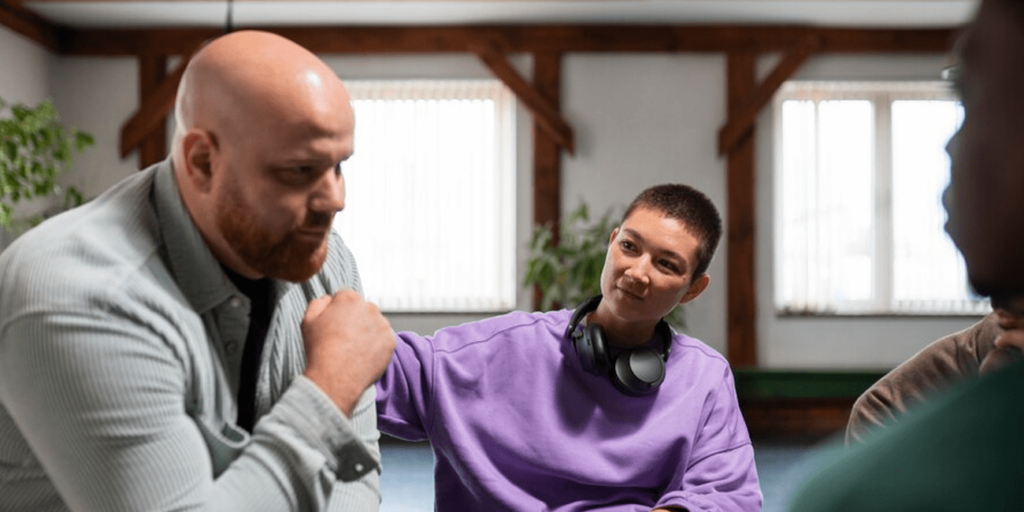Supporting Loved Ones Thrive: Navigating Addiction Recovery
Addiction is usually a complex issue. It is multifaceted, and involves not only the sufferer but often his family and the most intimate relationships in life. Where drugs are concerned, family dynamics are probably the biggest challenge in any addiction recovery program. Nevertheless, with the right approach, you can support your loved one effectively- keeping them from harm while preserving your well-being at the same time. Archway Recovery is a safe, trusted source of insight into how families may walk this path together.
Understanding Addiction and Its Impact on Family Dynamics
But before detailing how to support your loved one, it is first imperative to understand the broader effects of addiction. Addiction is a chronic disease of the brain-altering chemicals that induce people to act against their own best interests, sometimes to the destruction of those dear to them. Many families will inevitably fall victim to this cycle, an endless tsunami wave of emotional turmoil, shattered trust, financial pressure, and co-dependency.
An essential understanding is the perception of the acceptance that addiction is not a moral failing but a disease. Once you understand the scenario empathetically and compassionately, it brings light toward viewing recovery as a group journey rather than a burden. That is something We try to emphasize- create a compassionate environment to support recovery through understanding.
Add Your HThe Role of Families in Recoveryeading Text Here
In this regard, there is no denying the truth that involvement in addiction recovery can sometimes be more of a boon than a bane. In most studies, active participation by families generally leads to better recovery results. However, this comes with an added challenge requiring quite a delicate balance between offering support and necessary boundary setting on the part of a family.
At Archway Recovery, we encourage family support without the weight of addiction. It’s being there and supportive, not enabling destructive behaviors but being present, loving, and supportive but not enabling. Addiction recovery is profoundly personal, a process unique to one individual, and it can be the foundation of support, not the driver of it.

Actionable Ways to Supporting Your Loved One
1. Educate Yourself About Addiction
Be informed about the process your loved one is undergoing, for it is meaningful to provide support. Overcoming addiction is a severe medical condition that can change brain chemistry, so it does take time and treatment. Educating yourself on this will bring empathy and fruitful conversations with them about the problem.
2. Encourage Healthy Communication
Be open and honest with each other. Avoid judgmental words and accusations, but use more of how you feel and what you have perceived. For example, instead of telling your partner that you always let us down, say, “I feel hurt when promises are broken.” That way, you will create a space where your loved one feels free to share their difficulties without fear of shame.
3. Set Boundaries
You don’t have to poison yourself, loving someone for your recovery. Setting boundaries is the best way to improve your emotional and mental well-being. This may even translate to saying no when they ask for money or limiting exposure to toxic behavior, setting conditions under which you will continue offering support. Remember, boundaries are not walls; they are guidelines for healthy relationships.
4. Participate in Family Therapy
Addiction recovery is healing not only for the person with an addiction but also for the family unit. Family therapy can become an excellent foundation to resolve all root issues, inaccurate communications, and hidden resentments among family members. It can also instruct everybody to support each other better moving forward. We emphasize family involvement in therapeutic settings because this strengthens trust, healing, and a changing environment.
5. Be Calm and Compassionate
Recovery does not occur overnight. There would be days when your loved one would feel better and worse on other days. At this point, you will have to be patient. Relapse may occur; however, this does not mean recovery fails. You should calmly tackle such relapses and urge them to continue sobriety.

Avoiding Common Pitfalls
Recovery from addiction is hard to support a loved one through, and families sometimes inadvertently lapse into patterns that are harming instead of helping. Here are some common pitfalls to avoid:
- Getting Over-Involved: Of course, you will want to assist your loved one as much as possible, but you must give them room to do parts of their hiking on their road to addiction recovery on their own. Becoming overly invested in their recovery leads to co-dependency-in many cases, you end up losing your own identity in the process.
- Enabling: Supporting does not mean enabling. Giving monetary aid, bailing your loved one out of bad situations, or making excuses for them only fuels the cycle of addiction. Learn the difference between support and enabling.
- Focus Only on The Addiction: It’s undoubtedly true that an addiction will take over the life of your addicted loved one, but that is only one aspect of the situation. Be sure to celebrate the other triumphs besides recovery as your loved one goes through this process. Celebrate how they start employment, pursue hobbies, and form healthy relationships. We encourage a holistic approach to sobriety, reminding families to celebrate all victories.
Establishing a Network of Support for Yourself
Families tend to become estranged when one member engages in addiction. Develop your support structure – social, through a recovery group or professional therapy. It’s common for many family members to ignore their mental health needs during addiction recovery. Do the same for yours, remembering you cannot pour from an empty cup. By caring for yourself, you become a better source of support for your loved one.
Helping organizations like Archway Recovery know the importance of community in life; many organizations also offer resources for families and those recovering from addictions. You aren’t alone in this.
How Archway Recovery Guides Families Through Addiction?
Our philosophy at Archway Recovery is fundamentally simple: recovery is best traveled with loved ones. Our sober living environment heals, grows personally, and rebuilds lives in a safe and compassionate environment. Our staff is personally experienced in addiction, meaning they bring an empathetic approach that breeds trust and long-term sobriety.
We also recognize that families are part of this process. To encourage family involvement and open communication, we endeavour to offer the necessary tools and support to enable families to deal with the situation alongside the affected individuals. Advice is offered on handling family relationships, assertiveness, and emotional well-being in the process of recovery.
Conclusion
Addiction recovery encompasses much more than getting sober-it is also a complex family dynamics navigational process. However, it provides some of the most critical elements for maintaining recovery over the long haul. Educating yourself, maintaining healthy communication, setting limits, and providing professional help can help your loved one without losing your well-being.
Recovery from any addiction, like drugs or alcohol, is a journey rather than a destination. You go up, and then you come down, but hey, if you are patient and understanding and receive proper support, then you and your loved one can heal from this grudge. That is where we come into play-walking with you on this healing journey in search of a compassionate community that supports recovery and renewal.


